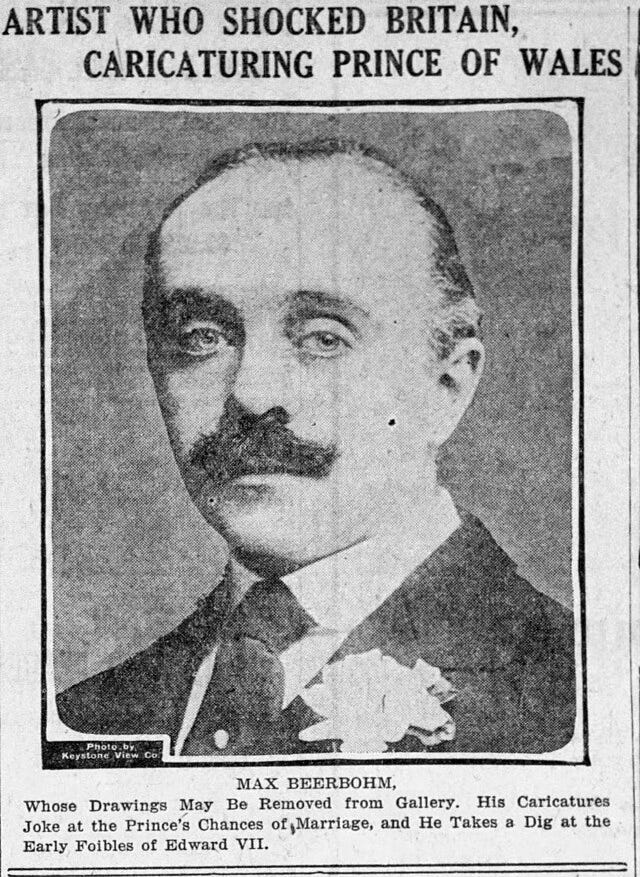Coignée (Decadi), 10 Pluviôse CCXXXIII
As I am always seeking new avenues for pursuing the trivial, I thought I might make this a recurring feature here at Leaves in the Wind, so perhaps we might hopefully call this ‘These Fragments Have I Shored 1’. If nothing else, the form spares me the effort of trying to turn ephemera into essays while allowing me to take note of them for my own pleasure (and, ideally, for your entertainment). I suppose this is a lighter and somewhat lazier version of the format of my Thoughts In and Out of Season columns.
1: Sir Henry Maximilian Beerbohm—the inimitable Max, as we all know him now—was born on 24 August 1872. Twenty-seven years later to the day, Jorge Francisco Isidoro Luis Borges Acevedo came into the world. It was my nephew Addison who alerted me to the delightful fact of the two men sharing a birthday, knowing that I would appreciate its cosmic import and inexhaustible spiritual significance. He and I now regularly observe what we call ‘Beerbohm-Borges Day’. It occurs to me that we should not be the only ones; and so I invite all of you—exhort all of you, in fact—to make room in your sacral calendars for the feast.
2: How I envy the French for the very thing that purblind Americans have always mocked in modern French political history (by ‘modern’ I mean post-Bourbon 1.0). It is positively admirable of them to have gone through (to this point) fourteen constitutions and five republics, whimsically interlarded with a couple monarchical restorations and here or there, impishly enough, an empire. Whereas Americans often pride themselves on constitutional stability and hold the French example in scorn as something labile and slightly hysteric, it is precisely the ridiculous immunity to constitutional change and the cunningly elaborate legal mechanisms erected against significant constitutional improvements that have left us in this country in a state of cultural, social, and political paralysis so acute that all hope of compromise and communal spirit ever prevailing again in public discourse has been extinguished. We have much to learn from the French, but of course we could never accept that.
3: One of the more annoying phrases one hears in popular parlance is “No pun intended.” The reason it is annoying is that it is almost invariably uttered following some demi-witticism that is not a pun at all. As far as I can tell, there is some general notion out there that a pun is any use of a word that is fitting but not precise (at least, that is the best I can make of the matter). But a pun is in fact a specimen of paronomasia, which is to say an intentionally defective dual signification based upon a rough homophony. Thus, for instance, my late father’s egregious joke—and he was a notorious and irrepressible punster—that a cat walking on a beach should make one think of Christmas because of its “sandy claws”.
Keep reading with a 7-day free trial
Subscribe to Leaves in the Wind to keep reading this post and get 7 days of free access to the full post archives.





